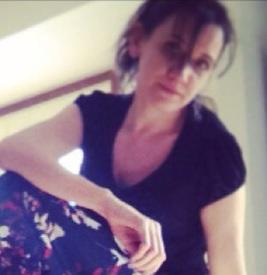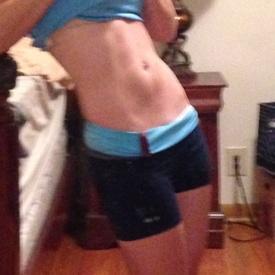GLUTEN - What is it? PLEASE EXPLAIN!

Nicola1944
Posts: 290 Member
Hi all, :flowerforyou:
Sorry to sound a little bit.... erm, stupid. (No smart comments!!!)
But what exactly is Gluten? What does it do? Is it in all foods? Would I benefit from a gluten free diet? (I have PCOS?)
Please help!!!
I'm not thinking about becoming completely Gluten free, but I am thinking about maybe buying more of the "Free from Gluten" products in the supermarket and trying to cut it out a bit.... if i would benefit in any way?
About me: :blushing:
24
Female
SW - 230 (ish)
CW - 165
GW - 150
Sorry to sound a little bit.... erm, stupid. (No smart comments!!!)
But what exactly is Gluten? What does it do? Is it in all foods? Would I benefit from a gluten free diet? (I have PCOS?)
Please help!!!
I'm not thinking about becoming completely Gluten free, but I am thinking about maybe buying more of the "Free from Gluten" products in the supermarket and trying to cut it out a bit.... if i would benefit in any way?
About me: :blushing:
24
Female
SW - 230 (ish)
CW - 165
GW - 150
0
Replies
-
First of all, and im honestly not meaning to sound bad here, but if you want a definition or explanation of what gluten is, then maybe you should just google it and do some research. Youll find out more that way
But in short - gluten is is a protein composite found in foods processed from wheat and related grain species, including barley and rye
Unless you have a gluten intolerance or coeliacs disease then no you should not cut gluten out as cutting t out will cause you to have an intolerance to in in the future, and thus you would never be able to eat it again
Really, the whole 'gluten free' things is a fad, a thing that people want to believe will make them lose weight because they want a quick and easy fix to their weight problems without accepting the fact that they have to actually do some work and diet and exercise are the way to do it
Theres nothign wrong with eating gluten free foods though, but i wouldnt advise completely cutting it out
And i say this as a person with coeliac disease
Good luck!0 -
Gluten is a protein that occurs naturally in wheat and a few other grains. It's the "stretchy" component in wheat bread doughs. If you separate the gluten from the carbs in the wheat, you get seitan, a vegetarian protein or meat substitute. It doesn't occur naturally in other foods, but of course it may be added during processing.
What does it do? Aside from giving bread dough a wonderful texture? Like other proteins, it provides amino acids that your body needs to rebuild itself as it get damaged and worn out and to repair muscles after workouts.
If you don't celiac disease or some other diagnosed gluten sensitivity issue, I don't see how it would benefit you to adopt a gluten-free diet, other than to make your life complicated and possibly lighten your wallet, since many gluten-free products cost most than conventional products. Also, many of the foods in the store labeled gluten-free are at best merely offering a reassurance to those who do have celiac disease that no gluten was added in processing, since the conventional product is not traditionally made from wheat and would have no gluten unless some small amount was added in processing. It's like purely plant-based foods that are labeled "cholesterol-free."0 -
Hi all, :flowerforyou:
Sorry to sound a little bit.... erm, stupid. (No smart comments!!!)
But what exactly is Gluten? What does it do? Is it in all foods? Would I benefit from a gluten free diet? (I have PCOS?)
Please help!!!
I'm not thinking about becoming completely Gluten free, but I am thinking about maybe buying more of the "Free from Gluten" products in the supermarket and trying to cut it out a bit.... if i would benefit in any way?
About me: :blushing:
24
Female
SW - 230 (ish)
CW - 165
GW - 150
[/quo
Sounds like a waste of money, it's going to cost u wayyy more and if u don't need to buy it why would u waste the $ on gluten free stuff????????????0 -
Gluten is a protein that occurs naturally in wheat and a few other grains. It's the "stretchy" component in wheat bread doughs. If you separate the gluten from the carbs in the wheat, you get seitan, a vegetarian protein or meat substitute. It doesn't occur naturally in other foods, but of course it may be added during processing.
What does it do? Aside from giving bread dough a wonderful texture? Like other proteins, it provides amino acids that your body needs to rebuild itself as it get damaged and worn out and to repair muscles after workouts.
If you don't celiac disease or some other diagnosed gluten sensitivity issue, I don't see how it would benefit you to adopt a gluten-free diet, other than to make your life complicated and possibly lighten your wallet, since many gluten-free products cost most than conventional products. Also, many of the foods in the store labeled gluten-free are at best merely offering a reassurance to those who do have celiac disease that no gluten was added in processing, since the conventional product is not traditionally made from wheat and would have no gluten unless some small amount was added in processing. It's like purely plant-based foods that are labeled "cholesterol-free."
AGREE!0 -
Unless you have a gluten intolerance or coeliacs disease then no you should not cut gluten out as cutting t out will cause you to have an intolerance to in in the future, and thus you would never be able to eat it again
I wish this would work with cheesecake!0 -
What does it do? Aside from giving bread dough a wonderful texture? Like other proteins, it provides amino acids that your body needs to rebuild itself as it get damaged and worn out and to repair muscles after workouts.
Now I want to make homemade soft pretzels...and bread.. And log them as muscle repair food in my food diary.
I buy the gluten free chicken pot pie at the health food store, because it has cornbread for the top crust..and it is delicious! I think next time I make chicken pot pie I will try cornbread on top instead of the pastry dough.0 -
There is no reason to cut gluten out of your diet unless you have a medical condition that dictates otherwise. And a lot of the gluten free products are high calorie, so it can actually be counterproductive to weight loss.0
-
But what exactly is Gluten? What does it do? Is it in all foods? Would I benefit from a gluten free diet? (I have PCOS?)
If your not allergic to Gluten (which at 24 you would know by now) then no, don't do gluten free no need.0 -
What does it do? Aside from giving bread dough a wonderful texture? Like other proteins, it provides amino acids that your body needs to rebuild itself as it get damaged and worn out and to repair muscles after workouts.
Now I want to make homemade soft pretzels...and bread.. And log them as muscle repair food in my food diary.
I buy the gluten free chicken pot pie at the health food store, because it has cornbread for the top crust..and it is delicious! I think next time I make chicken pot pie I will try cornbread on top instead of the pastry dough.
Mmm...cornbread...0 -
Since you've already gotten some really good responces on what gluten is, i will share my insight as a non-celiac gluten intolerant person to the gluten free diet.
Many people see weight loss results by cutting gluten becuase they are stepping away from processed foods and eating more fruits and veggies. It has nothing to do with gluten. Whole wheat is something your body needs for fiber. When you don't eat gluten it becomes very hard to eat your daily amount of it. Basically, you can only have oats, rice and corn based fiber products.0 -
My mom and sister both have gluten sensitivities, so they have both been gluten free for years. They feel much better, but they haven't lost weight because of it. As others have said, gluten is just a protein and doesn't affect weight in and of itself.
If you don't have a gluten sensitivity, I see no reason to cut it out of your diet. No need to make your eating habits more complicated than they need to be for the sake of weight loss. However, I have heard that going low-carb can be beneficial for those with PCOS, but that's definitely something you should research for yourself and ask your doctor about.0 -
Thanks for the responses everyone!
 0
0 -
Gluten intolerance can be diagnosed later in life than at 24, but should be diagnosed before adopting a gluten free diet. There is no reason for someone without a gluten intolerance to cut it out, and as others have said it just makes life complicated. My husband has coeliac disease, and gluten crops up in all sorts of unexpected places.
If you re considering this because you feel bloated or ill after eating bread, the problem might be the methods used to make bread these days. Look up 'Chorleywood process', there's a reasonable summary on Wikipedia.
If you have symptoms after eating anything containing gluten (wheat products, so bread, biscuits, cakes, pasta), then seek medical advice.0
This discussion has been closed.
Categories
- All Categories
- 1.4M Health, Wellness and Goals
- 398.2K Introduce Yourself
- 44.7K Getting Started
- 261K Health and Weight Loss
- 176.4K Food and Nutrition
- 47.7K Recipes
- 233K Fitness and Exercise
- 463 Sleep, Mindfulness and Overall Wellness
- 6.5K Goal: Maintaining Weight
- 8.7K Goal: Gaining Weight and Body Building
- 153.5K Motivation and Support
- 8.4K Challenges
- 1.4K Debate Club
- 96.5K Chit-Chat
- 2.6K Fun and Games
- 4.8K MyFitnessPal Information
- 13 News and Announcements
- 21 MyFitnessPal Academy
- 1.6K Feature Suggestions and Ideas
- 3.2K MyFitnessPal Tech Support Questions









